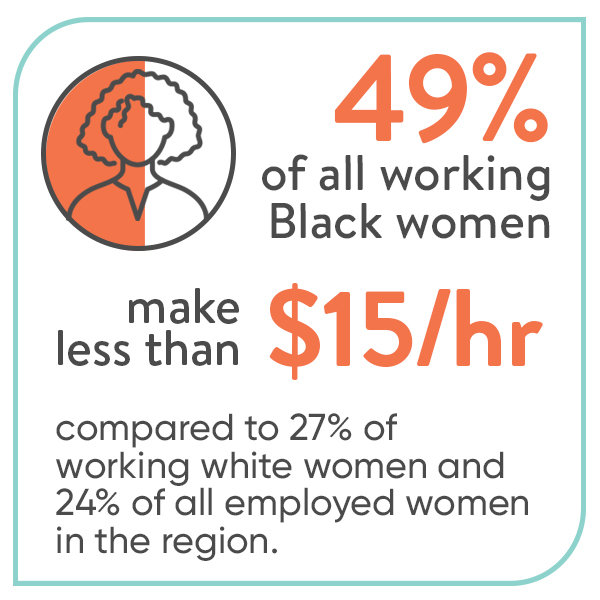The effects of research funding are a critical concern for the future of innovation and economic growth in the United States. As federal and institutional funding sources face potential cuts, the impact of research funding becomes ever more pronounced, especially within the startup ecosystem. Research institutions like Harvard University, renowned for their role in fostering entrepreneurship and innovation, are at the forefront of this challenge. A recent federal funding freeze has jeopardized billions in grants vital for scientific advancement, raising alarms about the long-term consequences for the nation’s economic landscape. Economists warn that the potential loss in funding could mirror the devastation experienced during the Great Recession, signaling a haunting outlook for recent and future generations of innovators.
The relationship between financial investment in research and its influence on innovation is a fundamental topic that merits attention. Many believe that the lifeblood of entrepreneurship and technological progress lies in adequate research funding, which catalyzes new ventures and ideas. Institutions such as Harvard University have been pivotal in shaping the startup culture, supported by thriving academic and research initiatives. However, recent developments, including a federal funding freeze, threaten to inhibit these pathways to entrepreneurship and growth. It is essential to explore how decreased financial support can stifle the emergence of new ideas and diminish the entrepreneurial spirit that drives progress.
The Consequences of Federal Funding Cuts
The recent $2 billion funding freeze on research at Harvard University highlights a growing concern regarding the economic consequences of reduced federal funding for scientific research. Economists at American University have projected that even a partial cut could lead to a 3.8% contraction in GDP, echoing the severity of the Great Recession of 2008-2009. This situation raises the alarm about the fragility of the U.S. economy, particularly given the historical significance of research expenditures in fostering innovation and economic growth.
Moreover, less funding threatens not just individual researchers but the entire ecosystem which thrives on innovation. Startups, often born from university research, rely heavily on initial grants and funding to bring their ideas to fruition. When the lifeblood of funding is cut off, it stymies both current and future entrepreneurial ventures, potentially leading to a stagnant innovation pipeline and diminishing opportunities for advancements that can significantly impact the economy.
Research Funding Effects on Entrepreneurship and Innovation
Research funding plays a pivotal role in driving entrepreneurship and innovation, particularly in the tech and biomedical sectors. The National Institutes of Health (NIH) funding, for instance, has been instrumental in advancing medical research that leads to transformative startups. Without robust financial backing, research universities may find themselves unable to produce the next wave of entrepreneurs who would contribute to forming new companies and generating jobs. The ripple effects can be felt across various sectors of the economy as new technologies drive growth and change.
Moreover, a healthy influx of research funding fosters a competitive educational environment, attracting top talent to institutions like Harvard. Students who are engaged in high-level research are more likely to emerge as innovative entrepreneurs. An environment that supports cutting-edge research and innovation not only boosts the startup ecosystem but also strengthens the country’s position in a global economy that continually demands more inventive solutions.
Harvard’s Role in the Startup Ecosystem
As one of the leading research universities, Harvard has been integral to the startup ecosystem, facilitating connections between academic research and entrepreneurial ventures. The university supports commercialization initiatives through its technology licensing office, helping turn innovative ideas into viable businesses. This pathway is critical as it allows research findings—particularly in high-impact fields like biomedical engineering—to be swiftly translated into product development, ultimately fueling the startup landscape.
Additionally, Harvard’s comprehensive entrepreneurship curriculum prepares students not just academically but practically, cultivating their ability to launch startups. The collaboration between students and faculty is instrumental in birthing new business ideas that emerge from rigorous research, thereby enriching the startup ecosystem with fresh insights and groundbreaking innovations.
The Immediate Impact of a Funding Freeze
The immediate consequences of a funding freeze can be damaging, resulting in hiring freezes, canceled research initiatives, and disrupted scientific projects. Such actions reflect a deeper systemic issue, whereby vital research programs struggle to sustain their momentum due to financial uncertainty. This stagnation can impede progress in vital sectors like healthcare, where innovation is essential for improving public health outcomes.
Furthermore, as potential entrepreneurs in research labs face uncertainty regarding their funding, the continuity of promising projects is jeopardized. The compromises made during these funding pauses can lead to long-term impacts on the startup ecosystem, as the pipeline for innovation becomes significantly impaired, delaying the entry of new companies into the market.
The Importance of Sustaining Research Funding
Sustaining a robust pipeline of research funding is critical for fostering an environment of creativity and entrepreneurial spirit. Successful startups often emerge from well-resourced research labs that have the necessary backing to explore risky yet potentially profitable avenues. When funding cuts occur, the innovative efforts that drive economic growth are directly threatened, stifling new inventions and development.
Moreover, consistent funding is essential to nurture the talent pool within universities. Talented researchers and aspiring entrepreneurs thrive in environments where they can test their ideas without fear of financial backing being abruptly withdrawn. Ensuring that federal funding remains secure is vital for not only the universities but the broader implications for entrepreneurship, innovation, and economic resilience.
Navigating the Future of Research and Innovation
As we move forward, navigating the future of research and innovation requires a concerted effort to secure funding that nurtures growth. The effects of the federal funding freeze will be felt more acutely in the years to come, as today’s lab projects translate into tomorrow’s startup successes. Institutions and stakeholders must advocate for policies that prioritize research funding to ensure a thriving ecosystem is sustained.
In this context, it’s also crucial to foster collaboration among universities, governmental entities, and the private sector to create a cohesive strategy for supporting research initiatives. A united front can help mitigate the damage inflicted by funding freezes, ensuring that innovation continues to flourish, paving the way for the next generation of startups and breakthroughs essential to economic advancement.
The Long-Term Effects of Funding Cuts on Innovation
While the immediate effects of reduced funding are evident, the long-term implications pose an even more significant threat to U.S. innovation. As the pipeline for talent and ideas shrinks, the ability of universities to incubate successful startups decreases. Over time, this could foster an environment where the United States falls behind other nations that continue to invest heavily in research and scientific advancement.
The creation and maintenance of a thriving innovation ecosystem require steadfast investment in research. Without it, industries grounded in advanced technology may struggle to compete. The history of successful startups shows that today’s investments in research will lead to tomorrow’s economic returns. Hence, it is paramount that stakeholders and policymakers recognize the significance of sustained research funding for long-term economic vitality.
Harvard University Funding: Implications for Future Startups
Harvard University’s funding landscape is at a critical juncture. The decisions made in the coming years regarding federal funding and university investments will profoundly affect the future of startups that emerge from its research initiatives. By aligning institutional strategies with the trends in funding availability, Harvard can better position itself as a leader in nurturing entrepreneurship and innovation.
Addressing the implications of funding freezes will require innovative approaches to securing alternative funding sources, diversifying revenue streams, and fostering partnerships with industry. Such strategies will not only buffer against the immediate impacts of funding cuts but also reinforce the infrastructure necessary for supporting future entrepreneurial ventures.
Call to Action: Investing in Research for Economic Stability
The current landscape underscores an urgent need for stakeholders to invest in research for the sake of economic stability. A unified call to action is required to influence policymakers and galvanize public support around the importance of robust funding for scientific research. By advocating for the continuation of federal funding programs, a more sustainable future for research and innovation can be secured.
It is also essential for the broader community, including tech firms and academic institutions, to recognize the necessity of investing in research initiatives. Collaborating on funding endeavors and publicizing successful outcomes from research investments can create a compelling narrative that demonstrates the value of sustained investments in innovation and entrepreneurship as fundamental elements of economic growth.
Frequently Asked Questions
What are the effects of research funding cuts on the startup ecosystem?
Cuts to research funding significantly impact the startup ecosystem by reducing the resources available for transforming innovative lab discoveries into viable businesses. With less funding, universities may produce fewer commercially viable startups, which can stifle entrepreneurship and innovation.
How does the impact of research funding influence entrepreneurship and innovation?
The impact of research funding is critical for fostering entrepreneurship and innovation as it provides the necessary financial resources for research and development. Greater funding leads to more successful commercial applications of scientific discoveries, thereby fostering a robust economy driven by innovation.
What is the significance of Harvard University funding for research and the economy?
Harvard University funding plays a crucial role in research that drives the economy. With substantial investment in scientific and technological research, Harvard fosters innovation, creates startups, and contributes to economic activity, emphasizing the need for sustained funding to maintain its impact.
What are the potential long-term effects of a federal funding freeze on scientific research?
A federal funding freeze can lead to significant long-term effects on scientific research, including reduced innovation, fewer startups, and delayed commercialization of scientific advancements. As a result, the economy may face a downturn in technological progress and entrepreneurial activity.
How do research funding effects shape the landscape of tech and biomedical startups?
Research funding effects are pivotal in shaping the landscape of tech and biomedical startups as they provide essential financial backing for research initiatives that lead to innovative products and solutions. Without adequate funding, the growth and emergence of these startups are severely hindered.
In what ways does federal funding support the startup ecosystem in relation to research?
Federal funding supports the startup ecosystem by financing the early-stage research necessary for innovation. When research is funded adequately, it leads to the development of groundbreaking technologies and ideas that startups can commercialize, significantly contributing to economic growth.
How has the Harvard Business School’s entrepreneurship curriculum been affected by research funding issues?
The entrepreneurship curriculum at Harvard Business School has been shaped by the availability of research funding. A lack of funding can reduce the opportunities for students to engage in startups, limiting their ability to leverage cutting-edge research and innovate within the marketplace.
What role do faculty play in the impact of research funding on startups?
Faculty members play a crucial role in the impact of research funding on startups by conducting high-quality research that can lead to innovation. Faculty-driven projects often translate into startup ideas, and without adequate funding, this linkage can be disrupted, threatening the startup ecosystem.
Why is it important to assess the impact of research funding on U.S. economic growth?
Assessing the impact of research funding on U.S. economic growth is vital as it highlights the essential role of innovation and technological advancement in driving economic prosperity. By understanding these effects, policymakers can better support initiatives that reinforce the connection between research and entrepreneurship.
What challenges do startups face due to disruptions in research funding?
Startups face numerous challenges due to disruptions in research funding, including fewer resources for innovation, decreased access to cutting-edge technologies, and a delayed entry into the market. These challenges can ultimately lead to a stagnation in economic growth and technological advancement.
| Key Points | Details |
|---|---|
| Impact of Funding Cuts | Harvard faces $2 billion in frozen research grants leading to potential GDP shrinkage of 3.8%. This is comparable to the impacts seen during the 2008-2009 Great Recession. |
| Role of Research Universities | They act as incubators for startups, providing pathways for faculty and students to commercialize research and foster innovation. |
| Consequences for Startups | Funding freezes can lead to hiring freezes and fewer successful startups in the future as the pipeline of company creation slows down. |
| Long-term Effects | Experts predict a ripple effect lasting 1-3 years before the full impact is felt, highlighting the essential need for federal funding in sustaining economic growth. |
Summary
Research funding effects are critical to innovation and economic growth in the United States. Cuts to research funding, particularly at prestigious institutions like Harvard, pose significant threats not only to academic research but also to the broader economy. The disruptions in funding have already started to show consequences for startups and entrepreneurial ventures, fundamentally altering how new ideas reach the market and stalling potential economic growth. A revitalization of support for research funding is crucial to ensure a thriving innovation ecosystem that can drive the economy forward.



